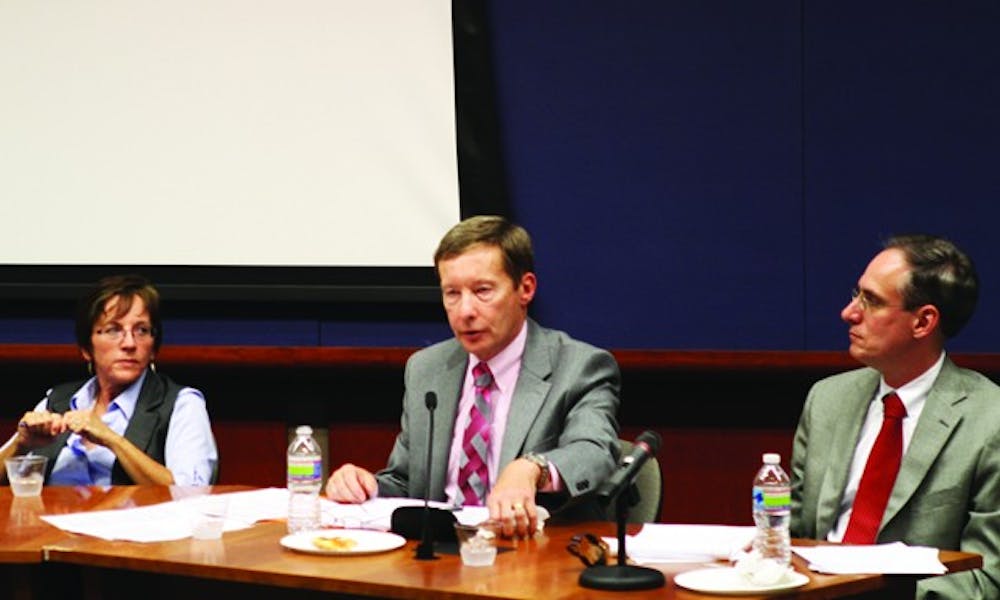Complex wars generate complexities in law, and America’s War on Terror is no exception.
Duke Law School hosted a panel of four legal experts yesterday to discuss how the legal landscape of the War on Terror has evolved since the attacks of September 11. The panel addressed a crowd of mostly law students on the variety legal and judicial issues that have arisen as a result of the government’s prosecution of the War on Terror.
Curtis Bradley, a professor of law and public policy studies, initiated the discussion with a comparison of policies during the Bush and Obama administrations.
“The continuity of the Bush and Obama administrations [is surprising], especially when you take into account the rhetoric during the last election,” Bradley said. “The Obama administration has been more aggressive in the war model, most notably through predator drone attacks [on terrorists],”
However, he said, Obama has differed from Bush’s policies in his opposition to torture techniques, such as waterboarding.
Charles Dunlap Jr., visiting professor of the practice of law, and executive director of the Center in Law, Ethics and National Security, discussed the ramifications on the American psyche of the American use of torture in the War on Terror.
“42 percent of Americans are ashamed of the [United States’s] image in the War on Terror,” he said. “Even today [Abu Ghraib] is brought up in the Middle East.”
That kind of emotional reaction can be a major agent in policy change. For instance, because of the media sensation over civilian deaths by airstrike, Stanley McChrystal, then-commander of the Joint Special Operation Command, placed heavy restrictions on airstrikes—and as a result, civilian deaths caused by airstrike decreased. Total civilian deaths, however, increased after the restrictions were put in place. Dunlap uses this example to then tell the law students in the audience “you have to understand the facts, if you want to be a national security lawyer.”
Mary Dudziak, visiting professor of law and American legal history, then spoke on the importance of knowing how law and information work in order to begin to understand the war.
“You won’t be able to write about this era, unless you learn about law... and get the sense of confusion between law and security,” Dudziak said.
To finish off the panel’s commentary, Neil Siegel, professor of law and political science, spoke about the American judiciary in relation to the War on Terror.
“The courts have been... palpably modest,” he said, “but not at all aggressive.”
Siegel cited the indefinite detaining of prisoners of war as an example of an issue about which the courts have been rather meek in taking a stand.
Get The Chronicle straight to your inbox
Signup for our weekly newsletter. Cancel at any time.

